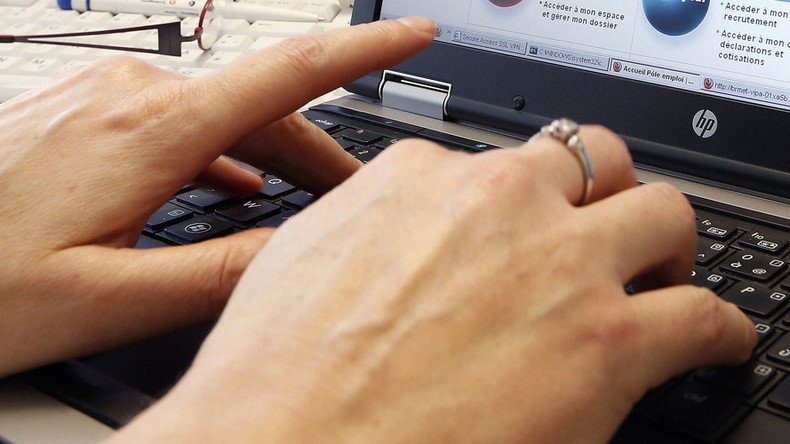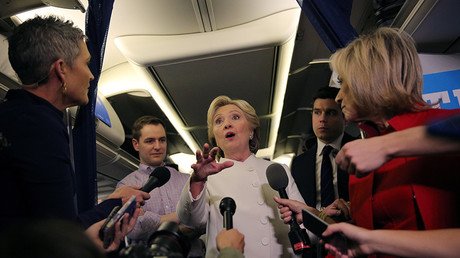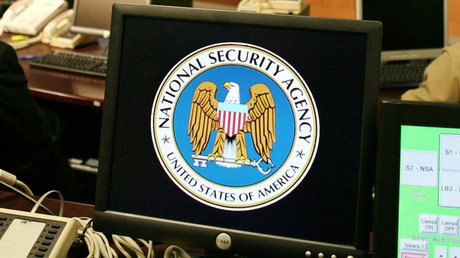‘Podesta leaks could have come from upset citizens like Snowden, not Russian hackers’

By ramping up its anti-Russian rhetoric with new cyber-attacks claims, Washington aims to divert attention from leaks by US whistleblowers like Edward Snowden, who believe the people should know the truth, critics of MSM coverage of WikiLeaks told RT.
Russia has been propelled to the center stage of the US presidential campaign since being blamed by Washington for orchestrating hacking attacks on DNC servers in an attempt to influence the outcome of the race for the White House.
Richard Becker of the anti-war ANSWER Coalition believes that such “accusations against Russia are not substantiated,” suggesting that such leaks could be coming from US intelligence’s own ranks, because people outraged by the US government’s mass surveillance programs may be inspired to follow in the footsteps of former NSA contractor Edward Snowden, who saw the spying as “entirely wrong, unconstitutional, [and] a violation of the rights of people.”
This week, it was revealed that retired US naval officer Harold Thomas Martin III may face espionage charges after he was found in possession of at least 50,000 Gigabytes (or 50 Terabytes) of classified information from the National Security Agency (NSA). Although Martin denies that he intended to pass the information on to third parties, the media has already nicknamed him “the second Snowden.”
While not everything is clear in Martin’s case, Becker is sure that frustration with the US government’s murky surveillance practices may be prompting others in similar positions to blow the whistle.
“But we know that there are other people who see what is happening and work for contractors like Booz Allen Hamilton, that both Snowden and Martin independently worked for, who have come to distrust and are upset by what the government is doing in this meta data collection,” he said.
Anti-Russian rhetoric ‘convenient shield to obfuscate reality’
For now, Washington continues to finger Russia for the recent hacking attacks. Team Clinton even accused RT and WikiLeaks of colluding after RT was the first to tweet about the release of another batch of Podesta emails – leaked correspondences from the democratic presidential candidate’s campaign chair, John Podesta. Apparently, the leak had become available to journalists and anyone else on WikiLeaks’ website some time before its Twitter account shared a link.
However, CNBC was never accused of conspiring against US interests after it was faster than WikiLeaks to publish a tweet about the whistle-blowing site revealing US President Barack Obama’s email address.
“The fact that Hillary Clinton in a debate on national TV basically used that the RT-false-story, that they somehow had the leaks before WikiLeaks tweeted them, or had them before WikiLeaks had made them public, shows the level of the political operatives and the media and the journalistic core in America, how lazy they are,” Patrick Henningsen, geopolitical analyst and founder of 21stCentury Wire.com told RT. He added that the idea of journalists relying on Twitter posts alone is “pathetic” and “insults the intelligence of anybody who’s got commitment to sit there and write the source for 24 hours… just to get a jump on the story.”
“The US media is not doing this, clearly. If they were, they would’ve known that that information was up freely available on WikiLeaks long before even it was tweeted,” Henningsen noted.
Media & #Clinton campaign hype conspiracy about RT collusion with #WikiLeaks@Yaro_RThttps://t.co/EmQjW1a1rCpic.twitter.com/KwJY2NndP8
— RT America (@RT_America) 20 октября 2016 г.
Henningsen believes that the “hyperbolic Russian hacking anti-Russia hysteria” that has gradually taken over the presidential campaign is “a convenient sort of shield to obfuscate and to deflect from the very realities,” namely – “there is enough leaking and hacking going on in the United States itself.”
The cases of famous whistleblowers like Snowden and Chelsea Manning have left “black marks” on the Obama administration, which includes former Secretary of State Hillary Clinton.
READ MORE: FBI recommends no charges against Clinton, but Snowden & others didn’t get off so easy
At the same time, while the White House prefers to portray Manning and Snowden as traitors, with Clinton once saying that the NSA whistleblower has “blood on his hands,” the public response to the leaks has been generally positive, Henningsen argues.
“A lot of people are flat out against the way government has handled some of these whistleblowers and leakers because what they have come out with is certainly within the public interest, and, overall, people are glad that they know about the information rather than having it kept secret,” he said.
The mere scale of NSA intelligence gathering makes it extremely difficult to keep everything under control, Henningsen added.
“You cannot keep a lid on big data. It’s an onion that you cannot keep covered up, it’s very difficult,” he said.
The statements, views and opinions expressed in this column are solely those of the author and do not necessarily represent those of RT.














